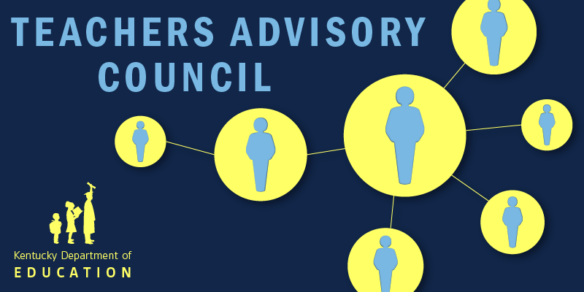
Members of the Kentucky Department of Education’s (KDE’s) Commissioner’s Teachers Advisory Council (TAC) discussed chronic absenteeism and teacher morale during their meeting on Dec. 7.
The council’s purpose is to improve the educational landscape of the Commonwealth by providing Kentucky’s commissioner of education with direct input from classrooms.
Judi Vanderhaar, a program consultant in KDE’s Office of Continuous Improvement and Support, gave an overview of chronic absenteeism across the state.
Chronic absenteeism is defined as a student who misses 10% more of his or her enrolled academic year, which equates to missing a combined total of 17 days of instructional time if their school year is 170 days.
Vanderhaar said the department started to see an increase in chronic absenteeism pre-pandemic and believes the pandemic exacerbated the issue.
“In the 2016-2017 school year, we saw 17% of students in the state were chronically absent,” she said. “In 2022-2023, that increased to 30% of students in the state.”
However, Vanderhaar stated that this is not necessarily a trend for all districts.
“Looking at the data by district, there are some districts in Kentucky that are not moving in this direction. So, we do see some bright spots and we’re going to be looking into what those systems are that they put in place,” Vanderhaar said.
She said the highest chronic absenteeism rates in 2022-2023 were among students who were homeless (50%) or economically disadvantaged (37%), who had an Individualized Education Program (36%), were in foster care (35%) or were Black (35%).
As to why the state is seeing this number go up, Vanderhaar said it seems to be due to several factors, such as different barriers in students’ lives, disengagement, misconceptions and aversion.
“There are obvious barriers, like basic needs, transportations, insecurity with housing, which is a huge problem, community violence,” she said, “and then also within the school practices of suspension.”
During the meeting Michelle Wilsonprogram consultant in KDE’s Office of Continuous Improvement and Support, provided strategies and resources for educators and staff to implement in their schools, one of which is fostering a welcoming and supportive culture for students and adults.
“Making sure that when students are in class, that they are engaged in meaningful learning activities,” Wilson said. That gives them “a reason to show up and to not just do the work from home and providing frequent feedback as well.”
TAC member and Russell County educator Donnie Wilkerson said one of the things he tries to implement into his classroom is hands-on, engaging activities.
“As the classroom teachers, we must step up and realize that we have to make it to where those kids don’t want to miss what’s going on in that classroom,” said Wilkerson, the 2024 Kentucky Elementary School Teacher of the Year. “You know we’ve got to be the salesman in the classroom in Kentucky.”
Teacher Morale
Jamaal Stiles, TAC chairperson and an educator from Washington County, said he took away three main ideas from the council’s discussions on data collection on teacher morale at their last TAC meeting in September.
The first was on student behavior and the correlation with low morale of educators. The second was on salary and retirement, and the third was on “the workload and excess responsibilities on teachers not being compensated for their time, and especially those of us who aren’t in a union and don’t have that representation,” Stiles said.
To address the educator workforce shortage that is adding stress to current teachers, council members discussed how programs like Educator Rising and grow-your-own can help recruit students who are interested in teaching.
“One of the important factors of research is that the majority of individuals who teach do so within a short radius of where they grew up,” said Byron Darnall, associate commissioner in KDE’s Office of Educator Licensure and Effectiveness. “Most people gravitate back toward their home area, and so to me, it’s always been sort of a fertile opportunity in terms … of priming them initially.”
The next Commissioner’s Teacher Advisory Council meeting will be held on March 7.



Leave A Comment